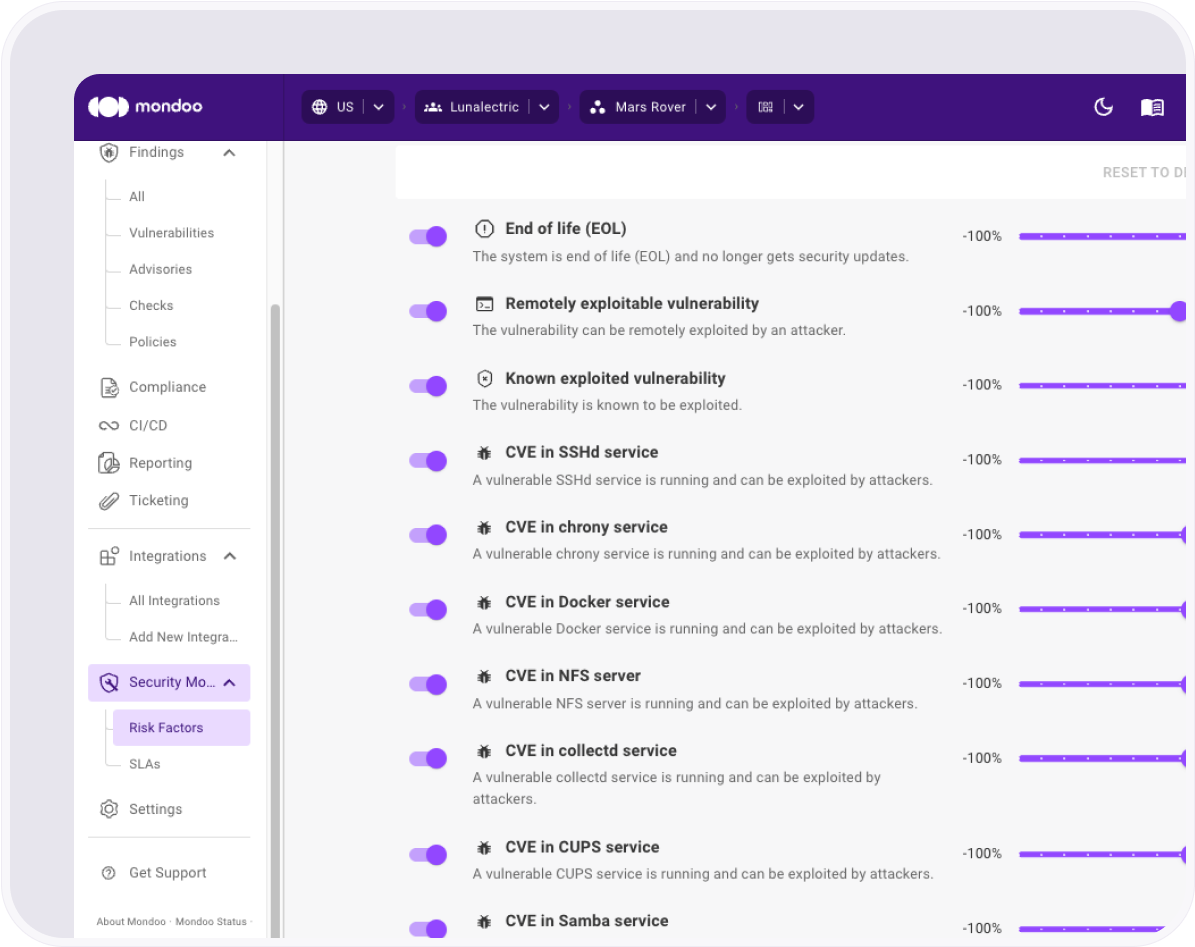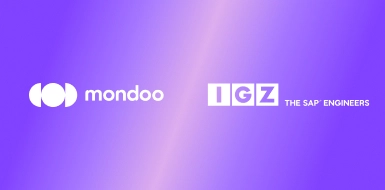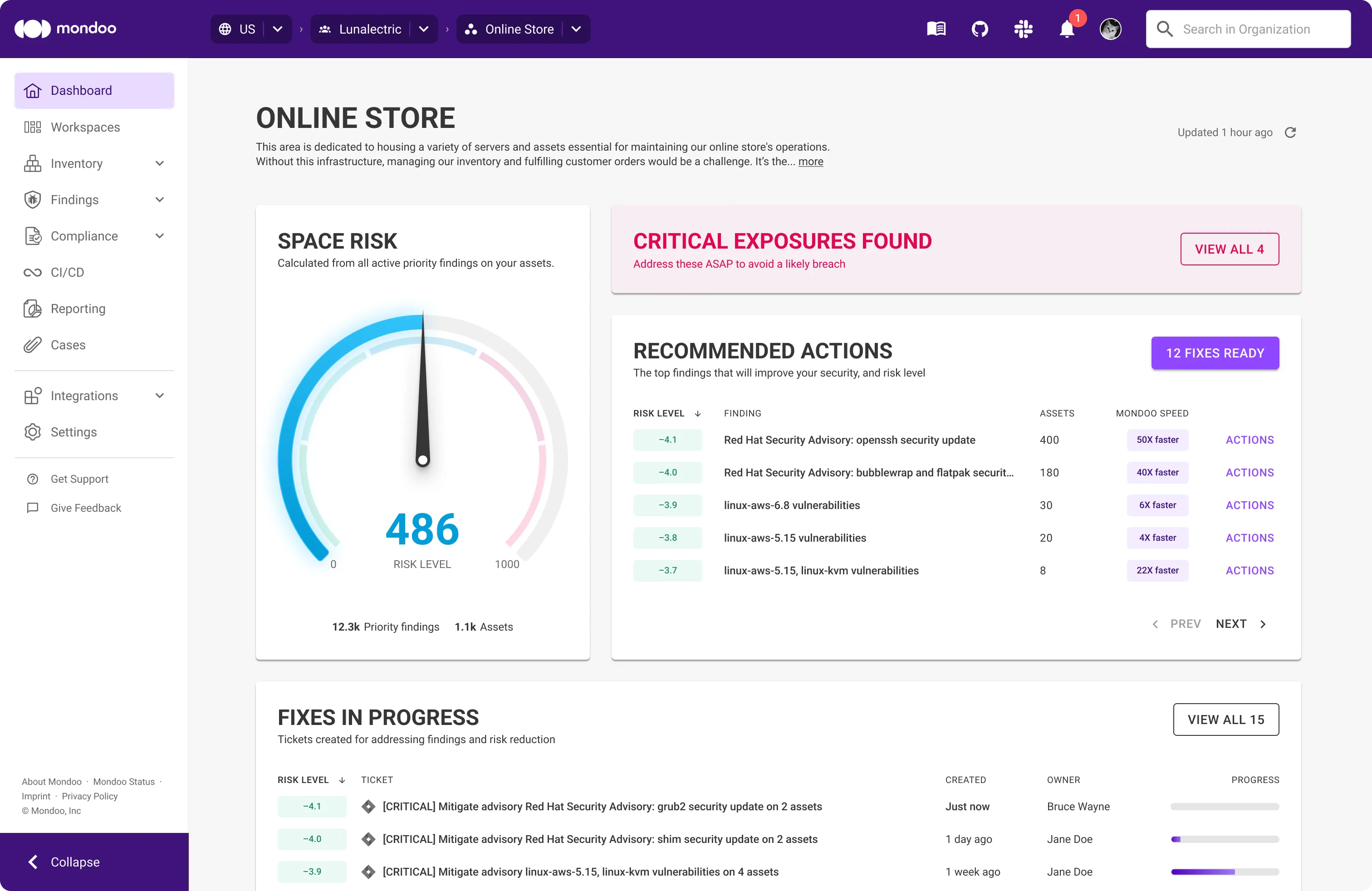Why do you need scoping?
One-size does not fit all
Organizations have different risk appetites, compliance requirements, critical assets, and organization structures. Tools without scoping are much more difficult to operationalize and deliver less ROI.
Focus on what matters most
Without the ability to set risk prioritization to align with the business, teams are less focused on the risks that are actually critical to the business and end up wasting time on issues that matter less.
Optimize security efforts
Tools that lack the flexibility to help teams deal strategically with hardening their environments, result in friction between security and platform engineers and higher workloads with less security posture improvements.
Mondoo scoping capabilities

Customize risk factors
Mondoo takes many different risk factors into account when prioritizing and scoring findings to enable teams to address the most critical ones fast. If necessary, the weighting of risk factors can be customized according to the organization’s risk appetite and individual environments.


Configure workspaces
With Mondoo workspaces, you can organize your assets by team, location, technology, or focus area. Workspaces can be created by defining attributes that assets must (or must not) have, including asset name, cloud tag, platform, risk level, and more.
Set desired SLAs
SLAs provide an effective way to track vulnerability management performance, adhere to compliance regulations (for instance PCI DSS), and ensure that vulnerabilities are remediated within the set timeframe to minimize the risk of breaches.


Set asset criticality
Not all assets carry the same level of importance. By identifying which assets are critical and which ones aren’t, organizations can align security efforts with business priorities, ensuring that vulnerabilities affecting high-priority assets are addressed first.
Configure exceptions
By creating snooze exceptions for known, low-risk, or vendor-acknowledged issues, teams can reduce noise, streamline remediation efforts, and focus resources on the most critical threats.


Select compliance and CIS benchmarks
Enable the compliance frameworks and CIS benchmarks that are important to your organization. Mondoo will instantly start performing all the applicable control checks.
Mondoo customer success stories

FAQs
What is scoping in CTEM?
In Continuous Threat Exposure Management (CTEM), scoping is the initial phase where organizations define their security program parameters by identifying critical assets and aligning security policies with business goals and risk appetites.
Why is scoping important?
Scoping is important for CTEM (Continuous Threat Exposure Management) because it ensures that security efforts are focused on the organization’s most critical assets, vulnerabilities, and potential attack paths within an organization. Without proper scoping, threat exposure assessments risk being too broad or misaligned, reducing their impact and potentially leaving key areas unprotected.
What is scoping in Mondoo?
Mondoo allows you to customize security settings to align with your business priorities, risk tolerance, and organizational structure - improving efficiency, collaboration, and effectiveness.
Do all security platforms offer scoping
No. Currently Mondoo is the only platform to offer fully customizable risk factors and highly flexible workspaces and exceptions management.










